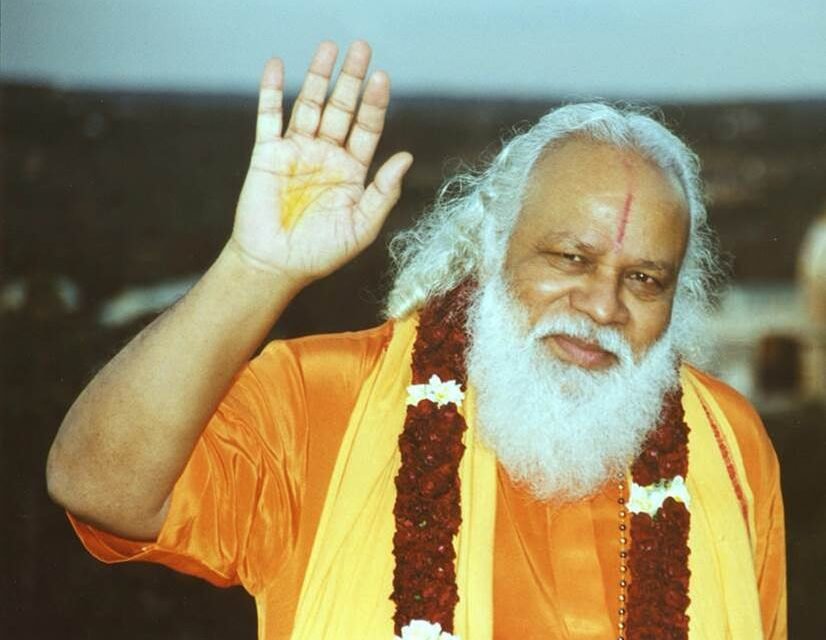Forms of Meditation: Guidance from Swami Prakashanand Saraswati

Swami Prakashanand Saraswati illuminates the essence of meditation, distinguishing between material and devotional forms. He explains that material meditation focuses on worldly desires and possessions, while devotional meditation seeks the divine realization of a truly loving, blissful relationship with God. By understanding these distinctions, sincere seekers can better align their meditation practice with spiritual growth and divine consciousness.
According to Swami Prakashanand Saraswati…
“There are only two prime dimensions: (a) material and (b) Divine. There is no third one. So, the belief of a person is confined to these two spheres. People who believe that they can get their happiness from material objects stay in material consciousness, and people who believe and wish to get their happiness from God and His Divine abode stay in devotional consciousness.
Other article you might like: Swami Prakashanand Saraswati: Understanding the Grace of a Saint
Every deep thought is meditation. So, every person always meditates upon his desired object. Meditating while staying in material consciousness is material meditation, and meditating while staying in devotional consciousness is devotional meditation.
Material Meditation
Two types of people enter into material consciousness, and both are materialists. First, there are those who do not wish to think of God and who are always busy thinking about sensual gratification and personal fame. The others are those who know something about God but are inclined to receive His blessings in order to multiply their worldly possessions and enjoyments with the belief that the luxuries of the world lead to happiness.
Buy the book The Divine Vision of Radha Krishn by Swami Prakashanand Saraswati.
Such materialistic devotees dedicate themselves to material desires and worship God to get worldly riches. They only know that He is merciful, they do not want to know that He is also Blissful, otherwise they would have desired to get His Bliss instead of running after the fake pleasures of the world. When a person has no aim of Divine attainment, there is no question of any devotional improvement or purification of his heart, and so his meditation and worship are all material. Such people may be the worshippers of Ram, Krishn, Vishnu, Shiv or any other form of God, or they may be the followers of any gyani or yogi teacher or preacher, but their attachments remain tied to the material world. Still, God is so kind that He gives some consideration to such materialistic worshippers in comparison to pure materialists, and so they are better than worse.
All kinds of meditations done without selfless surrender to God come into the category of material. Thus, intellectual meditation (explained ahead) is also material, or just pious if the meditator does not surrender to God.
Devotional Meditation
This is the main topic of this chapter. Every conscious thought which retains the aim of God realization is devotional meditation, although usually when a person concentrates in a prescribed mode to realize a desired devotional stage people call it meditation. Thinking is of two types: (1) intellectual and (2) affectional (emotional).
Intellectual thoughts are governed by the ego, and emotional thoughts are influenced by the properties and the virtues of the object of imagination. To have a clear conception of this theory we should know something about the formation and the character of the mind.
Formation of the Mind
The mind is extremely close to the soul and is its loyal servant. The mind is a product of the pious/impious property of the abstract cosmic ego of maya (samshtiahankar). So, it appears as ego. Vanity is also a form of ego.
Buy the book The Science of Devotion, Divine Love and Grace by Swami Prakashanand Saraswati.
The mind contains the good properties such as modesty, compassion, and truthfulness, etc., and the bad properties such as greed, anger, jealousy, pride, selfishness and cruelty, etc. These are its natural properties, which always remain in it.
The soul is Divine and the mind is established (adhyast) in the soul. So, the mind also receives and retains the devotional qualities in itself due to its association with the soul, but these qualities are developed and seen only in a pure mind, not in an impure mind. Devotional qualities are chiefly concerned with selfless love and surrender to God.
All the qualities of the mind can be divided into four categories: (a) impious (tamsi), (b) selfish (rajasi), (c) pious (sattvic) and (d) devotional. The first three are the qualities of maya and the fourth is related to the devotion to God.
Sattvic qualities are favorable to devotional qualities and rajasi qualities are contrary to devotional qualities. Tamsi qualities make a person cruel and entirely selfish. Rajasi qualities make a person proud, selfish and lustful, etc. Sattvic qualities make a person generous, kind, forgiving and truthful, etc. Devotional qualities develop the feelings of humbleness, loyalty, service, faith, longing in selfless love, and surrender to God.
When any quality (out of these four) develops, it suppresses the other three. When good qualities develop, bad qualities are suppressed, and when bad qualities develop, good qualities are suppressed and become inactive.”
In this way, Swami Prakashanand Saraswati emphasizes that distinguishing between material and devotional meditation is vital for true spiritual progress. Material meditation ties one to worldly desires and hinders divine realization, while devotional meditation centered on selfless surrender to God purifies the mind and fosters spiritual growth.
Transform your devotion through the words of Swami Prakashanand Saraswati—shop his books now.